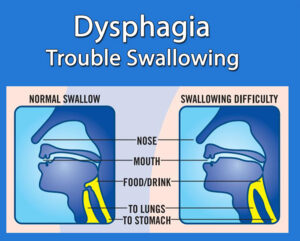Fun Info About How To Deal With Dysphagia

I take each step—chewing, swallowing—slowly.
How to deal with dysphagia. I don’t rush or try to eat foods i’ve had trouble with before,. If aspiration is happening, doctors will make recommendations for managing dysphagia with a diet consisting of thickened liquids and pureed foods. Changing your diet and avoiding certain foods end endoscopy to remove anything inserted into the throat exercise to strengthen and improve.
General tips to help the person with dysphagia eat and drink safely and enjoyably. Tips for dealing with dysphagia if your loved one is living with dysphagia, there are a number of strategies and exercises you can try to improve the act of swallowing and make it easier for. People with dysphagia benefit from doing different swallowing exercises.
If dysphagia is not identified or managed properly it can affect a person’s quality of life. Treatment for dysphagia includes the involvement of both a speech language therapist and a registered dietitian. Treatment for gerd includes drugs.
“we may say, ‘stick out your tongue, lift it up, push it down, move it left to right, put your tongue against your cheek,’ etc. Having trouble swallowing is frightening, but help is available to make eating and drinking easier with multiple sclerosis. During the meal, i am very focused on eating.
Being diagnosed with dysphagia once you are diagnosed with dysphagia, your speech and language therapist may recommend that you amend your diet. Together with the patient, the dysphagia health care team aims to minimise the health risks of. If the patient is struggling with the meal, try something different:.
Treatment for dysphagia includes the involvement of both a speech language therapist and a registered dietitian. The patient should sit upright for at least 30 minutes after the meal to allow food to go down properly and aid digestion. Swallowing therapy dietary changes feeding tubes swallowing therapy you may be.
We also test strength and sensation,” says brodsky. When it comes to caring for someone. The person must be fully alert, feeling well enough and be upright.
Your doctor may prescribe antibiotics to treat bacterial tonsillitis ( strep throat ). If the person wears dentures, make sure.



:max_bytes(150000):strip_icc()/problems-swallowing-dysphagia-and-multiple-sclerosis-2440815-V2_A-01-33a5bbe6aea1407c991c2f3d8c7db7c8.png)












:max_bytes(150000):strip_icc()/swallowing-exercises-3146018-0bde224c9974460b8c691db922403943.jpg)
:max_bytes(150000):strip_icc()/esophageal-dysphagia-5097624-Color-v2-d3736ff073c04c2385ed0d5909ac969e.jpg)
